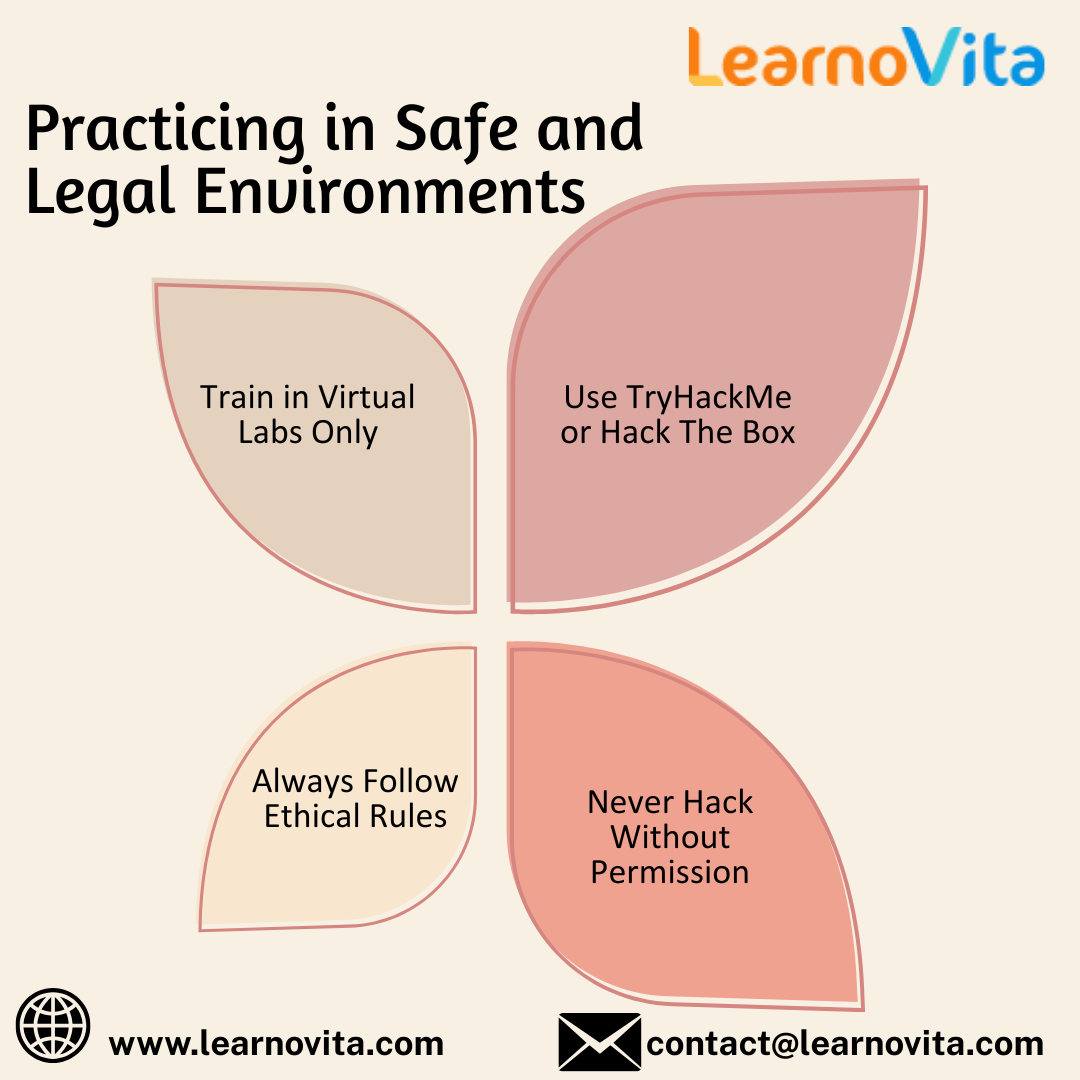Your Guide to Becoming an Ethical Hacker: A Beginner’s Step-by-Step Journey
As cybercrime continues to grow, the demand for skilled ethical hackers has reached an all-time high. Ethical hackers also known as white-hat hackers are cybersecurity professionals who help organizations find and fix security flaws before cybercriminals exploit them. If you're curious about hacking and want to use your skills for good, this beginner’s guide will walk you through each step of becoming a successful ethical hacker. Unlock cybersecurity skills with our Ethical Hacking Online Training, designed to teach real-world hacking techniques in a legal and structured way.

What is Ethical Hacking?
Ethical hacking involves legally breaking into systems to discover security weaknesses. These professionals simulate cyberattacks to identify and fix vulnerabilities, always working with permission and within the law. Their work is essential to protecting sensitive data, systems, and infrastructure from malicious threats.
Why Ethical Hackers Are Crucial Today
In a digital era where personal information, financial transactions, and business operations rely heavily on technology, the potential for security breaches is massive. Ethical hackers act as defenders anticipating threats, strengthening defenses, and helping organizations stay one step ahead of attackers. Their work protects not just systems, but the trust and safety of users worldwide.
Step 1: Master the Fundamentals of IT and Networking
-
Study networking basics including TCP/IP, DNS, firewalls, and routing.
-
Learn how operating systems, especially Linux and Windows function internally.
-
Gain familiarity with system architecture, servers, and command-line tools.
-
Understand how internet protocols and ports work in real-world environments.
Step 2: Build a Strong Understanding of Cybersecurity Principles
-
Get familiar with different types of attacks: phishing, malware, DoS, etc.
-
Learn about cybersecurity tools like antivirus software, IDS/IPS, and firewalls.
-
Study encryption, hashing, and secure communication practices.
-
Explore the OWASP Top 10 list to understand critical web vulnerabilities.
Step 3: Acquire Basic Programming Knowledge
-
Use Python for scripting and automating cybersecurity tasks.
-
Understand JavaScript for analyzing web-based vulnerabilities.
-
Learn SQL to understand and prevent database-related exploits.
-
Explore Bash or PowerShell for working with systems via the command line.
Train in a Safe and Legal Environment
Before attempting real-world hacking tasks, it’s important to gain experience in ethical and controlled settings. Online platforms like Hack The Box, TryHackMe, and OverTheWire allow you to practice legally in simulated environments. These platforms provide scenarios where you can safely apply tools, techniques, and methodologies without violating any laws. Our Best Training & Placement Program ensures hands-on learning and career support, guiding you from skill-building to securing your dream job.

Step 4: Get Hands-On with Popular Hacking Tools
-
Nmap – to scan and map networks.
-
Wireshark – for deep packet analysis and network troubleshooting.
-
Burp Suite – to intercept and test web application traffic.
-
Metasploit Framework – for executing and managing exploits.
-
Nikto – to find vulnerabilities in web servers.
Consider Industry Certifications
Certifications are a great way to demonstrate your knowledge to potential employers. Begin with CompTIA Security+ to understand core security concepts, then pursue the Certified Ethical Hacker (CEH) credential. As you gain experience, aim for the OSCP (Offensive Security Certified Professional) to prove your practical penetration testing skills in live environments.
Step 5: Stay Updated and Connected
-
Read cybersecurity blogs and news portals to follow the latest threats.
-
Join online forums, Reddit communities, or Discord groups for peer learning.
-
Subscribe to threat intelligence feeds and exploit tracking sites like CVE Details.
-
Participate in cybersecurity webinars, virtual summits, and CTF challenges.
Apply Your Skills in the Real World
Practical experience is key to growth. Participate in bug bounty programs on platforms like HackerOne or Bugcrowd, where you can legally test apps and earn rewards. Entry-level cybersecurity jobs or internships also offer a chance to gain hands-on experience while building your professional credibility in the field.
Evolve with the Cybersecurity Landscape
The tech world never stands still and neither should you. To stay relevant, ethical hackers must constantly learn about emerging threats, tools, and technologies. From cloud security and mobile hacking to AI-driven threats, staying curious and proactive ensures your skills remain sharp and in-demand.
Final Thoughts
Becoming an ethical hacker isn’t about quick success, it’s about consistent learning, responsible practice, and a passion for digital defense. With the right knowledge, mindset, and effort, you can grow into a skilled cybersecurity professional capable of protecting systems and making the internet a safer place for all.
- Art
- Causes
- Crafts
- Dance
- Drinks
- Film
- Fitness
- Food
- Games
- Gardening
- Health
- Home
- Literature
- Music
- Networking
- Other
- Party
- Religion
- Shopping
- Sports
- Theater
- Wellness



